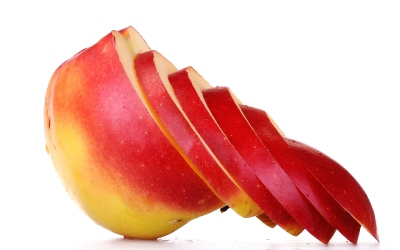More than Apple Slices: The Danger of Healthy Food Marketing
Healthy eating is a key component of family wellness, which is why there’s been such a public outcry over the negative impacts of junk food marketing to children in recent years. By the looks of things, food companies are starting to take note and look out for your children’s wellbeing – bringing in popular media characters to market “healthy” foods to children. Heck, even Happy Meals can come with carrot sticks and fruit bags now, but is this really progress? Or is marketing food to children still harmful to their wellbeing, regardless of nutritional content?
Research shows that a 30-second advert can influence your child’s food preferences from the age of two, and branding even trumps taste for young children. When preschool children were given the same junk food in McDonald’s packaging and plain packaging, for example, they reported that the food with the big yellow M on it tasted better, even though both foods were exactly the same. Other studies have reported similar results for food packaging that features media characters, which is easy to see considering that young children cannot even distinguish between a TV programme and an advert. Children don’t really understand the concept of selling and they tend to believe what they see until the age of about eight.
But advertising healthy food is for children’s own good, isn’t it? According to Susan Linn, Director of the Campaign for a Commercial-Free Childhood and an Instructor in Psychiatry at Harvard Medical School, ‘A primary goal for advocates should be for children to develop a healthy relationship to food. Foisting character-branded products on children undermines that effort. Marketing to children does more than sell products – it inculcates habits and behaviours. Marketing branded produce such as Kung-Fu Panda Edamame to children instils the unhealthy habit of choosing food based on marketing cues such as celebrity, rather than on a child’s own innate hunger, taste, or good nutrition.’
Yes, while diet is a vital part of family wellness, your children also require social, emotional and cognitive nourishment. Media icons aren’t only used to sell vegetables to your kids; they also market other products such as junk food, junk toys and screen media. One of the harms of commercialism, as research shows, is that it inhibits children’s creative play. This is the foundation of learning, creativity, constructive problem solving, and the capacity to initiate and complete tasks and projects. Throwing a few apple slices into a Happy Meal won’t make up for that damage.


Comments are closed.